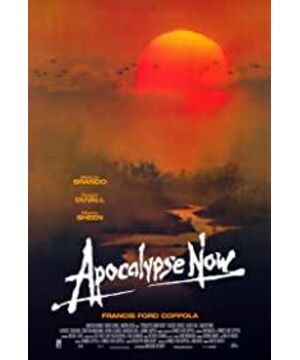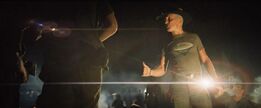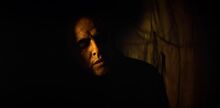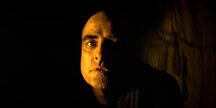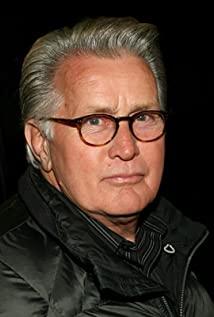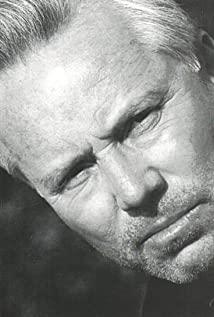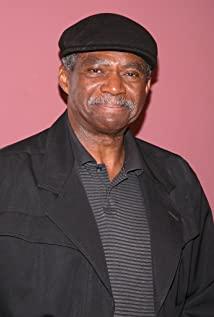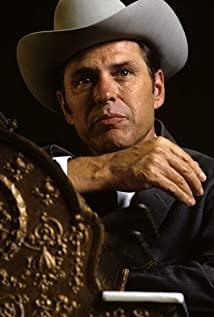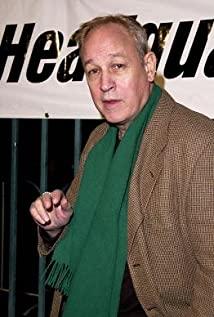Here I just want to briefly record some of the lines I was shocked by this film, and some of my inspired thoughts.
When I was taking the war course in college, it was one of the films recommended by the teacher, but when I saw this film was made in 1979, I thought that the quality of the picture would be terrible, so I persuaded me to quit. It was not until recently that all kinds of old movies suddenly became popular, and I found out what treasures were missed in those days. After reading it, there is only one sentence left! Hold!
From a technical point of view, the soundtrack, shooting, editing, lighting, and shadows can all be praised. But in terms of content, it has reached a height unmatched by other war films. Never thought that a war movie could be made like this. Different from previous war films, although they are all criticizing the behavior of war and the impact of war on people, they are rarely discussed to such an extent.
The title of Apocalypse Now is also wonderful. Those who watch this film will be inspired to some extent.
1. The reason to turn Kurtz to insane
Why did Kurtz go crazy to self-destruction? Or how does war destroy a person who is "inherently good"? It can be seen from the two or three words of other people.
In the war, all human moral concepts are overturned, and you will start to struggle against yourself, good vs evil. Although people will encounter many similar situations in their daily life, the existing social rules and moral standards will constrain your every move. But war is different. Under the special circumstances of war, the rational conscience and moral concept you believe in will be broken, and your self-struggle will not be a simple petty fight as before, because you face The temptation will be beyond your imagination. Therefore, once you reach the limit of your tolerance, the evil side in your heart is likely to burst out. After all, under the special conditions of war, it is too painful to continue to be kind, to become an evil person, or to be able to live more easily without psychological burden.
“In this war, things get confused out there, power, idea, the old morality, and practical military necessit. But out there with these natives, it must be a temptation to be a god. Because there is a conflcit in every human heart , between the rational and the irrational, between good and evil, and good dose not always triumph. Sometimes, the dark side overcome what Lincoln called 'the better angels of our nature'. Every man has got a breaking point, you and I have them. Kurtz has reached his, and obviously he has gone insane." [Captain Willard described Kurtz to him when Captain Willard saw his superior accepting this task]
"I began to wonder what they really had against Kurtz. It was not just insanity and murder. There was enough of that to go around for everyone." [A little thought from Captain Willard on the boat]
2. Why US lose in the Vietnam War?
It feels like the theme that runs through the whole movie is, why did the United States lose the Vietnam War? The answer given by the film is: why fight?
There are two types of American soldiers. One is that they don't know why they are fighting. Even if they live on the battlefield, they still live as they did when they were in the United States. For them, it's just another place to serve. The other is just fighting for the concept of a so-called Biggest Nothing in history. They have lofty ideals of fighting communism and spreading the concept of democracy, which will give them the so-called "moral high ground" in this war, which will make most Vietnamese end up on their side. Therefore, they may not need to do too much to make the Viet Cong lose without a fight. And among these two kinds of people, there is even one, the war-weary faction represented by Captain Willard. As soldiers, they had to obey orders and come to the battlefield. But in their hearts, they are tired of war. After all, after World War II, the United States has been actively participating in or launching various wars around the world, including the Vietnam War for more than 10 years. Some soldiers have begun to tire of this kind of non-stop combat. status. In this war, Americans do not have the concept of winning.
On the other hand, the soldiers in Vietnam knew exactly what they were fighting for. They fought for their land, for their families, and for what they had. What they fight for is something they can actually hold in their hands. Once they lose, they will face an unknown future, and the power of this fear makes them take up arms and fight without hesitation. . In addition, their nationalist sentiments fueled their notion of victory. Even if they have internal differences, but on the most crucial point, that they are Vietnamese and want to fight for Vietnam, they have no doubts. While the Americans thought they were attacking communism and not the Vietnamese, the Vietnamese thought they were attacking Vietnam. So they are fighting for Vietnam, not for those so-called doctrines. At this point, they have the belief that the American soldier cannot defeat the victory.
"Tous of duty limited to one year, they will remain dilettanctes in war and tourists in Vietnam. As long as could beer, hot food, rock 'n' roll and all the other amenities reamin the expected norm, our conduct of the war will gain only impotence. We need fewer men and better. If they were committed, this war could be won with a fouth of our present force." [Captian Willard reads Kurtz's report on the Vietnam War on board]-the weakness of American soldiers
"The vietnamese are very intelligent. You never know what they think. The Russian want to help them. 'come and give us some money, we are all communists'. Chinese, ' Give us guns, we are all brothers'. They hate the Chinese. Maybe they hate Amercians less than the Russians and the Chinese. I mean, if tomorrow the Vietnamese are communists, they will be VIETNAMESE communists. And this is something that you never understood, you Americans." [Captian Willard in French Dialogue with the owner of the manor while eating at the manor] - Nationalism of Vietnam
"See, Captain. While my grandfather and my uncle father came here, there was nothing. nothing. The Vietnamese were nothing. So we worked hard, very hard. We brought the rubber from Brazil and then palnted it here. We took the Vietnams , work with them, make somthing, something out of nothing. So when you ask me why we want to stay here, Captain, we want to stay here because it's ours. It belongs to us. It keeps our family together. I meam we fight for that. You are fighting for the biggest nothing in history. [Captian Willard's conversation with the owner of the manor during dinner at the French manor II] - fight for what?
"You are tired of the war, I can see on your face, It was the same in the eyes of the soldiers of our wars. We called them 'the Lost Soldiers'." Conversation of a French Widow] - War-weariness
"They will to do that, perfect, genuine, complete, crystalline, pure. They were stronger than me, because they could stand it. There were not monsters. There were men, trained cadres. These men who fought with their hearts, who have families, who have children, Who are filled with love, but they have the strength, the strength to do that. If I had 10 divisions of those men, then our troubles here would be over very quickly." 【After captivity, Kurtz Dialogue with Captian Willard III] the strongest faith of win of Viet Cong
"You have to have men who are moral, and at the same time, who are able to utilize their promordial instincts to kill without feeling, without passion, without judgement. Because it's judgement that defeats us. " [After captivity, Kurtz and Captian Conversation when Willard met IV]
3. Nature of War
The movie doesn't actually say much about the nature of war, but just sees the coldness, cruelty and filth of war from one or two lines. And the most silent thing is that we know clearly that the war will never end.
"In a war, there are many moments for compassion and tender action. There are many moments for ruthless action. What is often called ruthless, what may, in many circumstances, be only clarity. Seeing clearly what tere is to be done and doing it directly,quickly, awakerequest dust off. ""I am beyond their timid, lying morality. And so, I am beyond caring."[Captain Willard reads Kurtz's letter to his family on the boat]
- "The war will be still here tomorrow." - "yeah, I guess you are right." [Captian Willard's conversation with the French widow II while eating at the French manor]
"We train young men to drop fire on people, but their commanders won't allow them to write 'F*ck', because it's obscene!" 【After the captivity, Kurtz meets Captian Willard V】
(This sentence is really ironic. The commander does not allow soldiers to use swear words, because it is very obscene. However, at this time, their actions are the dirtiest in the world.)
4. PTSD of the War
In fact, this part of my personal feeling is closely related to why Kurtz ended up going crazy in the first part. People caught in war are always enduring the trauma caused by war, and most of these traumas are actually negative and negative. And the most uncomfortable thing is that the more sober people are, the more they will be deeply affected by the war, until they are destroyed.
"All the matters is that you are alive. You are alive, Captain. Thant's the truth." [What the French widow said to Captian Willard while he was in bed]
"Know something, man? I know something that you don't know. The man is clear in his mind, but his soul is mad. He is dying, I think. He hate all this, he hates it. But the man's. .. He read peotry out loud, all right? He likes you, cause you're still alive. What are they gonna say about him? 'He was a kind man'. "[When the photographer met the imprisoned Captian Willard dialogue]
(The favorite lines in the full text, 11 words accurately describe the destruction of people by war. In that environment, personal conscience and morality are ruthlessly destroyed, so you will feel that Coates' behavior is in that environment. In fact, it is a kind of normal self-protection, which will make people rationalize Coates' behavior. His sobriety, pain, contradictions, and self-struggles make people face and feel how war destroys a normal person, especially excellent ones. normal people.)
"Have you ever considered any real freedoms? Freedom from the opinion fo the others? Even the opinions of yourself?" [Questions Kurtz asked Captian Willard when he met him]
"You have a right to kill me, but you have no right to judge me." [The conversation between Kurtz and Captian Willard after the captivity]
(Kurtz is constantly rationalizing the reasons for his behavior, and perhaps only in this way can he live well.)
"It's impossible for words to describe what is necessary to those who don't know what horror means. Horror has a face. And you must make a friend of horror. Horror and moral terror are your friends. If they are not, thenehty are enemies to be feared. They are trult enemies." [After the captivity, Kurtz and Captian Willard's meeting II]
Some of my immature thoughts are written here.
Last prayer, world peace. (Although it is clear that this wish should never be realized.)
April 12, 2020
in Shanghai
View more about Apocalypse Now reviews


